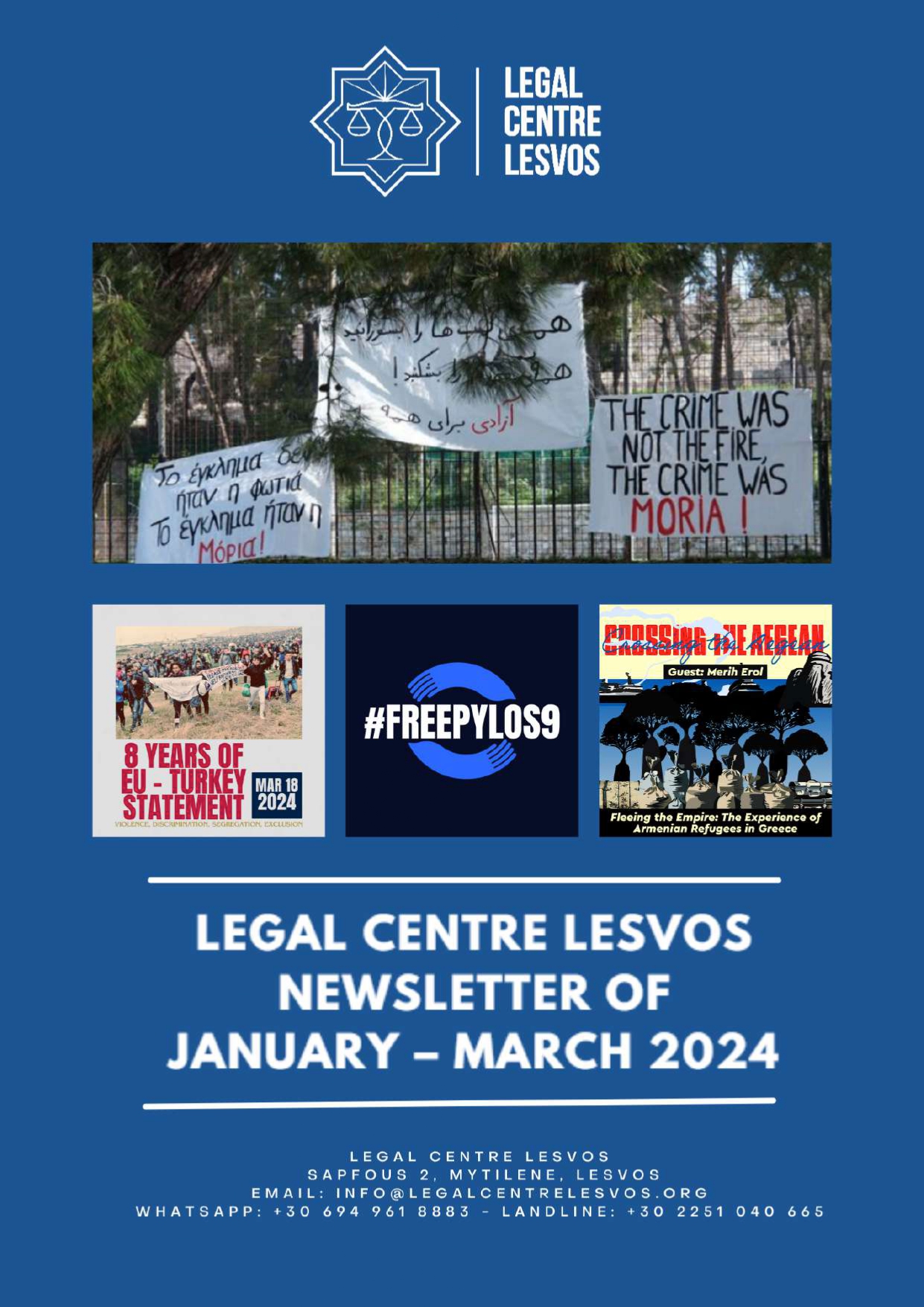The year started with yet another damning condemnation of Greece by the European Court of Human Rights, on 16 January 2024, for the killing a Syrian man during border operations in the Aegean Sea in 2014. Mr. Belal Tello was fatally shot in the head and two others on a migrant boat were seriously injured as the Hellenic Coastguards attempted to halt their boat by shooting over a dozen shots, while in movement, near the island of Pserimos. In the ruling in this case, Alkhatib and Others v. Greece, the Court ordered Greece to pay €80,000 in moral damages to Mr. Tello’s surviving wife and two children.
This case demonstrates that excessive use of lethal force and violence at sea against migrants is unfortunately nothing new for the Hellenic Coast Guard, who continues, unhindered, its policy of non-rescue and violent pushback at land and sea borders. While dozens of other cases of human rights violations caused during Greece’s border operations are pending before courts, no serious official investigations have yet been launched by Greece into what is now a well-documented illegal and dangerous policy of exclusion.On the contrary, everything seems to be business as usual: despite the increased scrutiny of the European Ombudsperson into Frontex’ operations in Greece and into the European Commissions’ allocation of funding to Greece’s border operations – neither operation has been suspended or even scaled down to date. Even the last resolution voted by the European Parliament on 7 February 2024 to express its grave concerns about serious threats to democracy, the rule of law and fundamental rights in Greece, pointing specifically at the treatment of migrants and systematic pushbacks at the borders, seems to be of little concern to the European Commission and other Member States.
On the other side of the border, while Turkish authorities are focusing on the thorough documentation of Greece’s pushbacks, similar and long-dated illegal practices of collective expulsions and severe exploitation of migrants continue to be documented in the Southern and Eastern borders of the country with Iran. As in Greece, these allegations of human rights violations are not investigated and easily denied and swept away by state officials through ready-made formulas, such as “activities in line with international law within the context of border security and sovereignty”. Since the May 2023 Parliamentary and Presidential elections in Turkey, controls of migrants at the borders by the Turkish Coast Guards seem to be more frequent and more violent. The election period was seemingly used as an opportunity for both the ruling and opposition parties to scapegoat migrants as the main source of political instability in Turkey, leading to enhanced and unprecedented anti-immigrant sentiment. Added to that, the burden of the economic crisis along with the increasing population of migrants with no structural policies in place allowing them to legalise their status in Turkey, is reported to have made people on the move an easy target for populist intentions.
This decline in migrants’ rights and apparent greenlight for border authorities to do everything to stop migrants from coming to the EU has now been endorsed by the political agreement reached in December 2023 on the new Pact on Migration and Asylum. As decried by hundreds of civil society actors, the Pact is a continuation of a decade of harmful policy that has led to the proliferation of rights violations in Europe and will have devastating implications for the right to asylum, allowing abuses including racial profiling, default detention and pushbacks to continue.
In the face of a crisis of international humanitarian law and human rights law globally, and the expected implementation of increasingly draconian anti-migrant policies in Greece, the Legal Centre Lesvos continues its work to fight against border violence, criminalisation of people on the move, and Europe’s inherently discriminatory migration policies.
Our latest newsletter covers many updates from Lesvos and in particular :
- Updates from Lesvos Closed Control Access Centre (CCAC)
- Conditions in the Lesvos CCAC and abusive measures to chase recognised refugees away from the camp
- Entry into force of a new Migration Code and insufficient regularisations of undocumented people in Greece
- Overview of Legal Centre Lesvos’ work to defend the rights of migrants
- Our legal assistance work in numbers
- Actions taken to support Eritrean nationals forced to register as Ethiopians
- Advocacy towards the facilitation of family reunifications to Greece
- Collaborations and events about migrants’ rights
- Challenging border violence
- EU-Turkey deal: 8 years of violence, discrimination, segregation and exclusion
- ‘Recording Mechanism of Incidents of Informal Forced Returns’ annual report
- Hunger Strike in Corinthos
- Continued efforts to fight criminalisation of migrants and human rights defenders
- Moria 6: Appeal trial of four of the ‘Moria 6’ convicted for the fires of Moria
- Free #Pylos 9: rushed closure of investigation and trial date on 21 May 2024
- Final report on the treatment of lawyers imprisoned and prosecuted in Turkey

